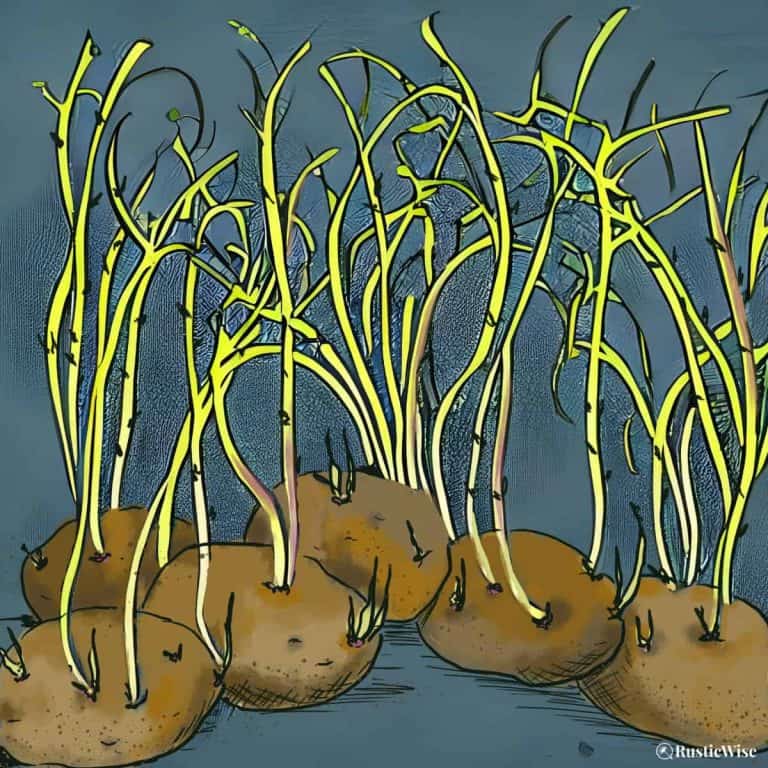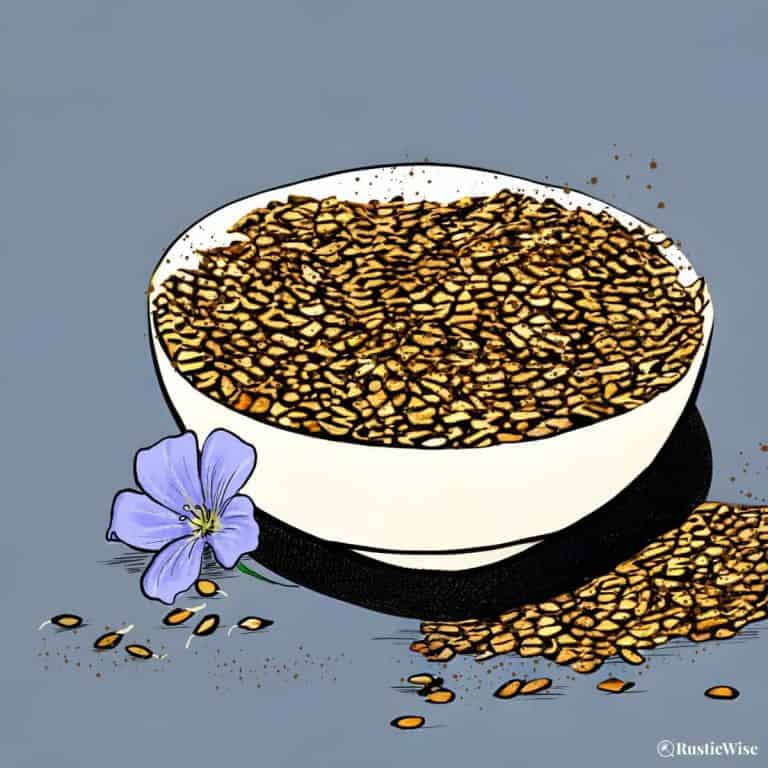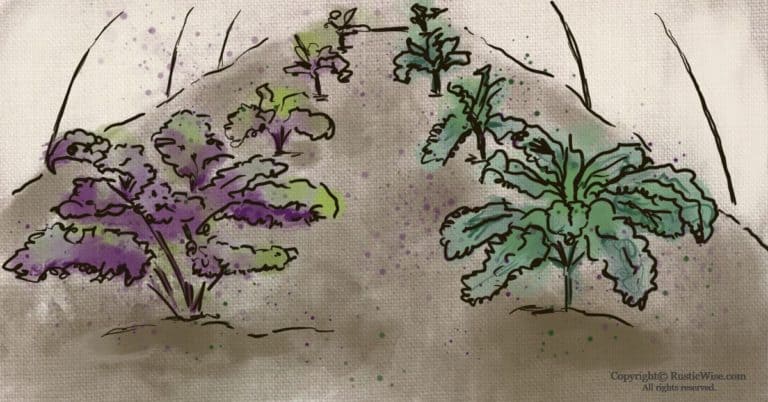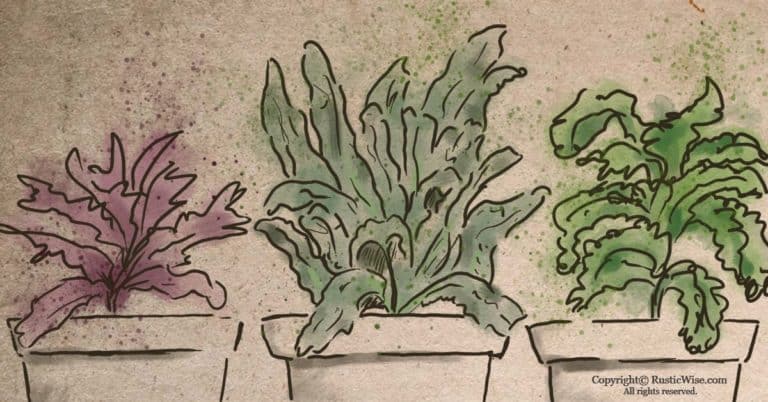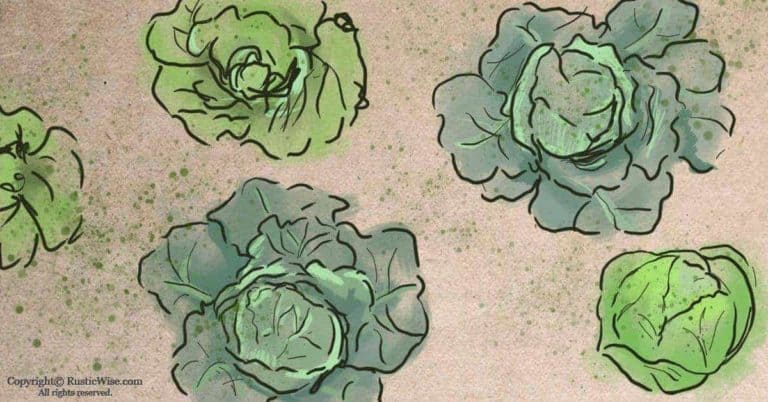Sprouting Seeds for Birds: Healthy Food for Avian Friends
RusticWise is supported by its readers. When you purchase through links on our site, we may earn an affiliate commission. As an Amazon Associate, we earn from qualifying purchases. Thank You!
While dry seed may form the bulk of a bird’s diet, it should no means be the only type of food. Whether you have a pet parrot, passerine, or are simply feeding wild birds, there’s a way you can easily up your bird feed game: sprouting seeds.
Sprouting seeds for birds unlocks the amount of available nutrients in seeds, making them easier to digest. Sprouted seeds are a great way to introduce a form of fresh greens as part of a balanced diet. All you’ll need are some quality seeds, a mason jar, and a sprouting lid (or a piece of cheesecloth and rubber band).
Your sprouts will be ready in 1 to 3 days. Don’t worry. If this sounds like a lot of work, rest assured that most of this time is hands off. Ready to get started? Let’s begin.
What exactly are sprouted seeds?
Sprouts are simply soaked seeds that have germinated. You can sprout a variety of seeds, including vegetables, grains, legumes, and nuts/seeds. Sprouted seeds will develop a small shoot that can be eaten together with the seed.
The first step to sprouting seeds is to soak them in water overnight. This helps prepare the seed for germination by coaxing it from dormancy. After the initial soak, you will continue to rinse and drain the seeds at least twice a day. You may notice growth within the first 24 hours.
Sprouted seeds are the first step towards growing your own food at home. Besides being a healthy source of food, this is also a fun activity to enjoy with your family.
Are sprouted seeds healthy for birds?
Just as you can sprout seeds for human consumption, birds also benefit from eating sprouts.
Many types of dry bird seeds contain a hard outer shell. The outer layer contains antinutrients such as phytic acids, which block absorption of nutrients.
The sprouting process helps break down antinutrients into simpler carbs and sugars, which makes it easier to digest for feathered friends. Their bodies can absorb higher levels of vitamins, minerals, and amino acids when eating sprouted foods.
Eating sprouts is good for your bird’s health and has a positive effect on their vitality. If you have a bird, consider offering sprouts to it regularly.
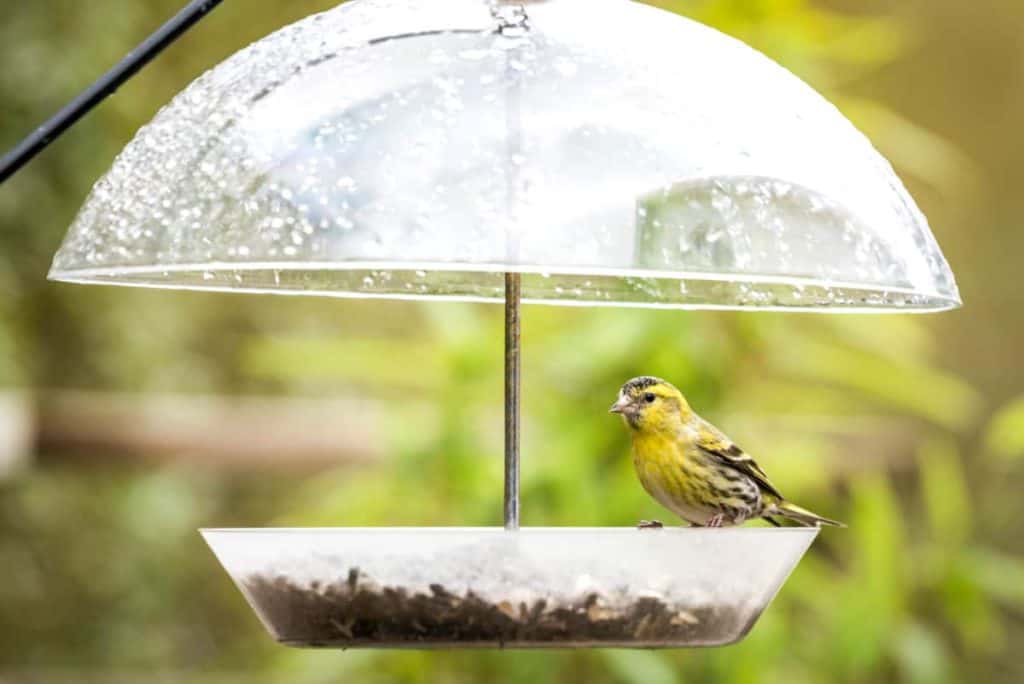
Dry bird seed isn’t all it’s cracked up to be
Seed mixes, while they contain many types of seeds, do not contain all the right nutrients needed by birds. Missing nutrients can usually be found in the form of sprouts and other fresh foods. Supplementing bird diets with sprouts may provide some much needed variety and nourishment.
According to the University of Florida Extension, if you’re only feeding your bird dry seeds, they are likely lacking in several key nutrients:
- Calcium: Many birds require about 1 percent calcium in their regular diet. Most bird seeds only provide about 0.02 to 0.05 percent calcium.¹
- Protein: Most regular bird feed contains little to no protein.
- Vitamins A and D: A lack of basic vitamins over the long term will cause a health deficiency. Having low levels of vitamin D may worsen the effects of low calcium.
Besides a lack of proper nutrients, many bird seed mixes are high in fat. Eating a high-fat diet may lead to obesity in birds.
It’s recommended that you feed birds a well-rounded diet from a variety of food groups:¹
- Grains
- Fresh fruits and vegetables
- Sources of protein
- Dairy products
Benefits of sprouting seeds for birds
If you’re able to sprout seeds, you could be providing an inexpensive and extremely healthy diet for your bird or parrot. Sprouted or germinated seeds are a great way to get more nutrients into a diet with little effort.
While various seeds contain different nutrients, many sprouted seeds are a source of plant-based protein with virtually no fat. Let’s look at a commonly grown type of sprout: mung bean.
For example, just 1 cup of raw mung bean sprouts is just 31 calories and contains the following nutrition benefits:²
- Dietary fiber (1.9 grams): 7 percent Daily Value
- Protein (3.2 grams): 6 percent DV
- Carbs (6.2 grams): 2 percent DV
- Fiber (1.9 grams): 7 percent DV
- Fat (0.2 grams): 0 percent DV
- Sugar (4.3 grams) 9 percent DV
- Vitamin C: 15 percent DV
- Iron: 5 percent DV
- Vitamin K: 29 percent DV
The wonderful thing about sprouting seeds is you only need a few basic supplies, and it takes little space. All you need is a jar, some seeds, and water.
Besides, growing your own sprouts is much cheaper than buying store-bought sprouts!
Note: Sprouted seeds make a good supplementary food for a bird’s diet. It should not replace other food groups.
Seeds to sprout for birds
There are a wide variety of seeds for your birds that would make good sprouting choices.
Sunflower sprouts are a perennial favorite. Black oil sunflower seeds in its raw form and sprouted form are nutritious and a great source of vitamins A, B6, C, and folates.
Keep in mind that only whole, unhulled seeds are sproutable. Split peas or split lentils for example won’t germinate. Use only seeds that are untreated and unflavored.
Note: The following are recommended seeds for most birds. Please do your due diligence and ensure the seeds are safe for your specific bird species.
- Grains: Many grains or pseudo-grains make good choices for birds. These provide a good energy source for your feathered friends. Examples of grain seeds to germinate include amaranth, barley, buckwheat, millet, quinoa, and wheat berries.
- Legumes: These seeds contain a fair bit of protein and also both soluble and insoluble fiber. Chickpea, green pea, lentil, mung bean, and soybean seeds all make good choices.
- Vegetables: Getting enough greens in a diet can be a challenge. The sprouting process opens up avenues of flavor and texture that serve as a great health food. Types of veggie seeds to try germinating are broccoli, beets, clover, fenugreek, radish, and mustard greens.
- Nuts and seeds: Most birds like many types of nuts and seeds such as almond, cashew, and sunflower seeds.
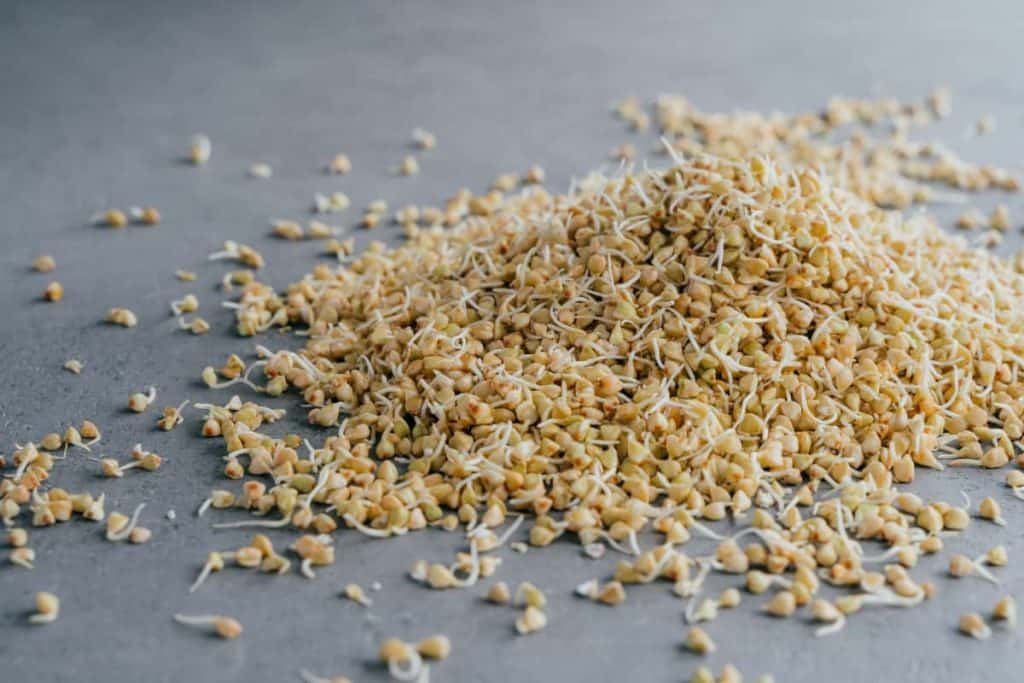
Credit: VectorState
What seeds should NOT be sprouted?
Trying to sprout any type of seed that’s shelled or processed is an exercise in futility. Stick with untreated, whole seeds (with shells intact) only.
Some types of seeds are not recommended as they may be toxic when uncooked, or difficult to digest if raw. This includes larger beans like Anasazi, black, kidney, lima, navy, and pinto beans.³
What supplies do you need for sprouting?
- 1-quart mason jar (wide mouth)
- Sprouting lid or piece of cheesecloth and rubber band
- Quality seeds
- Clean water
- Colander
While you can use many sprouters or containers to germinate seeds, the easiest one is a simple glass mason jar (wide mouth, preferably). A standard size is 1-quart.
You’ll also need a porous sprouting lid to rinse the seeds and keep them from falling out when you drain the water. You can buy a sprouting lid, or you can DIY one using a piece of cheesecloth or muslin, and a rubber band to secure it.
And of course, you’ll need some seeds. For the most success, use seeds that are specifically meant for sprouting or are organic. Avoid any seeds that have been treated with chemicals that inhibit germination; these won’t sprout.
Use only clean drinking quality water to soak and rinse seeds.
A guide to sprouting seeds for birds
If you’re brand new to sprouting, I highly recommend checking out our essential sprouting guide.
A few tips to keep in mind:
- The seeds should be rinsed every 8-12 hours (or twice a day) with cool, clean water. This is important to aerate the seeds, keep them moist, and rinse away any residues.
- Drain well after rinsing to prevent excess water from sitting. This can cause mold issues.
- Keep your jar out of direct sunlight as light and heat will inhibit their germination. A shady corner of your kitchen countertop should do the trick. Room temperature is fine.
- The amount of seed to use per 1-quart jar depends on the type of seed you’re growing. Some vegetables have high yield (such as mustard sprouts), while many legumes have lower yield. You can adjust this amount later once you’ve gotten the hang of it, but a good place to start is around 2 tablespoons for vegetable seeds (such as broccoli or mustard), and up to ½ cup of seeds for legumes such as chickpeas.
- Most sprouts are ready to harvest when less than ¼ inch long.
- Measure seeds: Portion out seeds per quart sprouting jar.
- Inspect and wash seeds: Do a quick inspection and take out any damaged seeds or other debris. Place the seeds in the jar, swirl, and rinse with clean cool water. Drain.
- Soak: Fill the jar with clean water again. Ensure all seeds are fully covered under water. You may need to swirl them and push them underneath the waterline. Let them soak overnight, or for 4 to 12 hours. This soaking period helps to activate the seeds. Place a sprouting lid or fasten a piece of cheesecloth onto the jar with an elastic band.
- Drain: After the seeds have soaked for several hours, drain the excess water by tipping the jar upside down. Try resting it at an angle upside down in a bowl for better drainage.
- Rinse and drain the seeds: After the initial soak, there’s no need to soak again. Continue to rinse with cool water at least twice a day, or every 8–12 hours. When rinsing, ensure all sprouts get hit with fresh water. Make sure you allow the jar to fully drain or you’ll end up with moldy sprouts.
- Harvest: Most sprouts are ready to harvest when their shoots are less than ¼ inch long. This can be anywhere from 1 to 5 days on average. Avoid letting legume sprouts grow too long as they will taste bitter. If your room temperature is on the cooler side, it will take longer for seeds to germinate. When harvesting, give your sprouts one last rinse under cold water in a colander to remove any seed hulls or other residue. If you find you have a lot of seed hulls remaining, you can place the sprouts in a bowl of cool water. The hulls will float to the surface. Allow to drain fully in a colander for several hours, and pat dry.
Store your harvested sprouts in the refrigerator in a container or bag with some airflow.
Sprouts are best when fresh. Grow only what your birds can reasonably eat within 2 or 3 days. You can keep some sprouts for up to a week in the fridge with proper storage.
If sprouts smell bad at any time, or look slimy, it’s time to toss them in the compost bin!
Tips on introducing sprouted seeds to birds
Don’t be discouraged if your birds don’t like the sprouted seeds at first. Try feeding them a little bit at a time along with their other favorite foods.
Many birds will ignore sprouts for a few weeks. Then one day, they suddenly take to them. And voila, you have a healthy food to add to your repertoire!
Where to buy bird seeds for sprouting
If you’re shopping at local stores, many pet stores, or garden centers sell special sprout mixes specifically for birds. Or, you could also just use the same seeds you’re sprouting your own food with.
You might like
Higgins Sunburst Soak And Sprout
- Suitable for small bird breeds.
- Contains sprouted seeds for a natural, nutritious way to give small birds their veggies.
- Treat for birds offers a unique seed blend with safflower, buckwheat, canary, mung bean, and more.
Found on Amazon
Check Current Price
Those in Canada and the UK should be taken to the product listing in your region.
👉 If you like this post, see our Essential Sprouting Guide: How To Grow Sprouts at Home. 🌱
Would you like more timeless tips via email?
Fun tips to help you live an independent, self-sustaining lifestyle. Opt-out at any time.


References
- University of Florida Extension, UNDERSTANDING PET BIRD NUTRITION, https://edis.ifas.ufl.edu/publication/VM067. Accessed November 2022.
- My Food Data (USDA), Mung Bean Sprouts, https://tools.myfooddata.com/nutrition-facts/169957/wt1/1. Accessed November 2022.
- Parrot Help, Sprouting for Parrots, https://parrothelp.rescuegroups.org/info/display?PageID=19309. Accessed November 2022.

Author: Theresa Tesolin
Theresa is co-founder of RusticWise. She helps people unleash their inner DIY spirit by encouraging them to get dirty and make or grow something from scratch.



